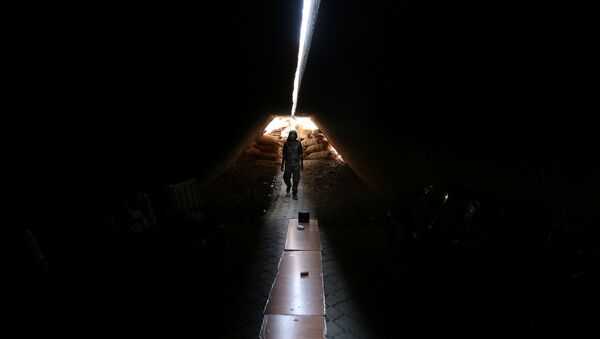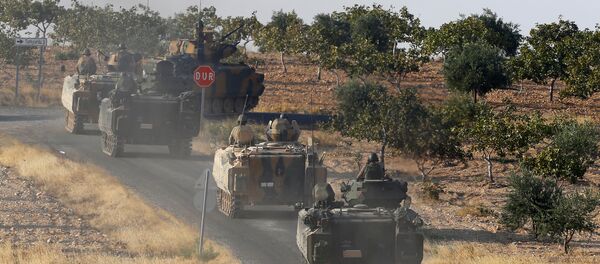Recep Tayyip Erdogan, the president of Turkey, who recently joined the fight against the jihadists, has disclosed Barack Obama's intention to advance on Raqqa and confirmed Turkey's readiness to support the offensive.
"Obama wants to do some things jointly concerning Raqqa," Erdogan told journalists during his return flight from G20 summit. "We said this would not be a problem from our perspective. Our soldiers should come together and discuss, then we will do what is necessary."
It seems that Turkey and the US failed to find common ground regarding Kurds, who effectively created a core of so-called Syrian Democratic Forces, along with various Arab, Assyrian, Armenian, Turkmen and Circassian militias.
The US backs Kurds to a significant degree, provide the coalition with both material and military support. There are also one to two hundred American "special operators" embedded within Kurdish ranks on the battlefield.
For Turkey, on the other hand, the Kurds are an essential threat, considering the long-time movement of Kurdish separatism within Turkey itself. Should Kurds gain strength in Syria, they will eventually take the fight to the Turkish territory, and Syrian Kurds proved to be quite able fighters with experience from beating Daesh forces back from the northern part of Syria, and now bolstered by the training of US Special Forces.
With that in mind, it is no wonder that Turkish forces did not hesitate to engage rebel (i.e. mainly Kurdish) groups even despite the fact that they are backed by the US, creating a complication for the Obama administration's strategy on Syria big enough for Pentagon to put the offensive on hold.
If Turkey manages to paralyze the Pentagon's main protégé, it will be open to discussion as to who would have to take Raqqa. Maybe, the coalition (read US) ground troops? Or, what if, the Russian-backed Syrian army, steps in to save the day?




